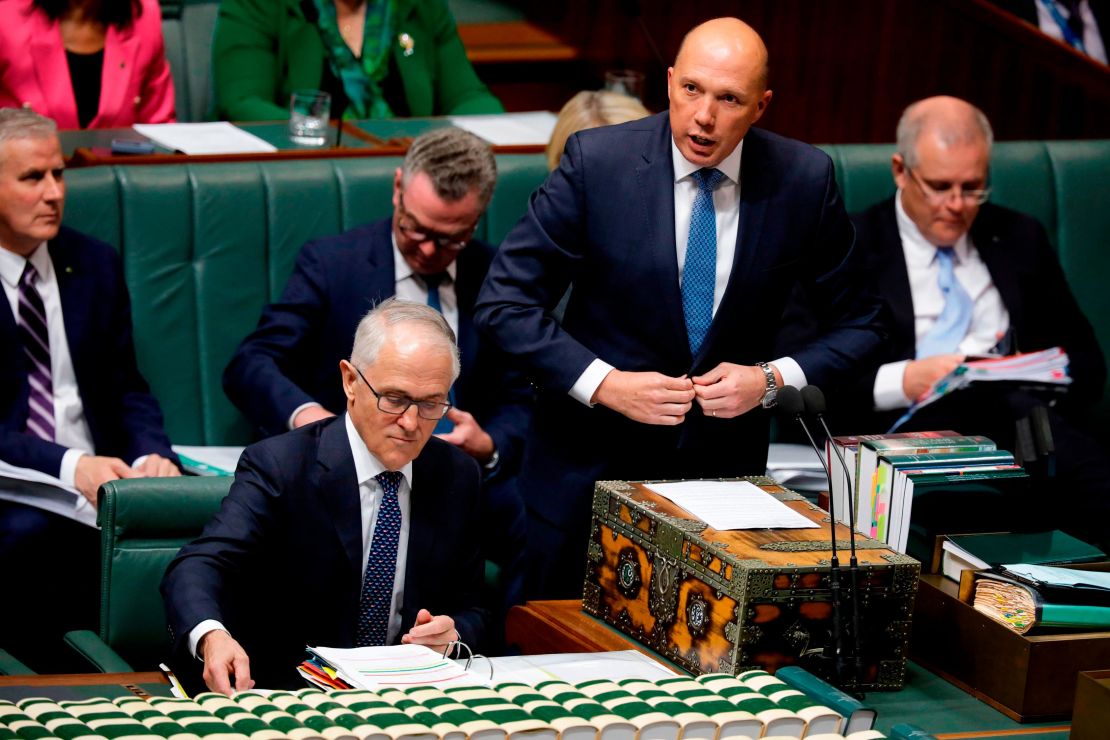Australian Prime Minister Malcolm Turnbull has narrowly survived a leadership challenge, facing down a conservative uprising in his party’s ranks over climate change policy.
But a second challenge could come by the end of the year, given the narrow result and policy tensions within the ruling Liberal Party.
“It’s only half a dozen people or so who need to change to turn the result around,” John Warhurst, emeritus professor of Australian Politics at the Australian National University, told CNN.
Turnbull has long advocated for action on climate change, and supports progressive social issues and an Australian Republic. But his policy positions have been viewed with suspicion and hostility by his party’s vocal conservative faction, who want greater investment in coal and cuts to immigration.
Turnbull threw all leadership positions in the Liberal Party open early Tuesday, inviting challengers to nominate themselves for party leader.
Home Affairs Minister Peter Dutton, a high-profile member of the party’s conservative faction, put his hand up but was defeated by Turnbull 48 to 35.
Julie Bishop remains deputy prime minister after her position was uncontested.

Speaking at a press conference after the ballot on Tuesday in Canberra, Turnbull made a call for unity.
“Australians expect us to be focused on them and talking about their issues. They don’t like us being focused on ourselves,” he said.
Soon after the vote Dutton resigned from the cabinet, stepping down from his dual roles as home affairs and immigration minister, which includes oversight of Australia’s strict border protection policy.
It followed a day of policy chaos in Canberra after Turnbull dramatically backtracked on a key part of his signature climate change policy over concerns from his party’s conservative faction.
The Australian leader dropped all carbon emission targets from his National Energy Guarantee (NEG) Monday to quash leadership rumblings, but it wasn’t enough to satisfy dissent.
Revolving door of leadership
In the past decade, the Australian government has seen three different leadership changes as the result of internal party challenges. Since 2007, no Australian prime minister has faced two consecutive elections.
In Australia, whichever party wins the most votes at a national election is tasked with forming a government, with the party’s leader assuming the role of prime minister.
The party can change their leader at any time, although until recently it was highly unusual for a sitting prime minister to be removed from power.
An Essential poll released in early August found 64% of Australians thought political parties shouldn’t change their leader outside of elections.
Turnbull previously took the leadership of the Liberal Party from then-Prime Minister Tony Abbott in September 2015, before winning an election in 2016.
Despite enjoying initial popularity, Turnbull’s approval ratings have dropped steadily in the past year compared to the opposition Labor Party.
Conservative uprising
Dutton, a former policeman from Queenland, is politically aligned with the party’s conservative faction and has emerged as their choice to succeed Turnbull.
“I believe very strongly we can win the next election if we get the policies and the message right, (including) lowering electricity prices and doing more on infrastructure,” Dutton said in a press conference after the ballot.
But while the former immigration minister has put his hand up for the leadership, experts said that doubts remain inside the party as to his ability to win the next national election, due within a year.
Polling has repeatedly found Dutton is one of the least popular options to lead the Liberal Party, behind Turnbull, Abbott and Foreign Minister Julie Bishop.
“It comes out of frustration over policy and the absolute determination of up to a dozen or so conservative MPs within the Liberal Party (who) have never been convinced Turnbull ought to be Liberal PM.
“They don’t just accept his credentials,” said Australian politics professor John Warhurst, adding that a renewed leadership challenge could come “within months.”



